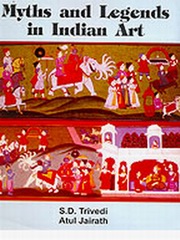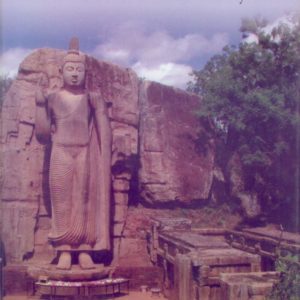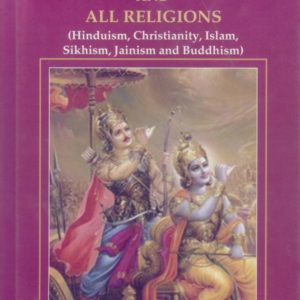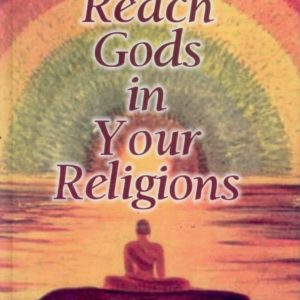Description
The book starts with an Introduction discussing the concept and role of myths and legends in Indian Art. It talks about the centrality of myths and legends in ancient Indian literature, folklore and popular imagination of the ordinary people.
It traces the essential role that myths played in the development of Hindu cosmology and cosmogony, the flights of fancy of the early Aryan mind and the efforts of Vedic and post-Vedic poets and thinkers to rationalize unexplained phenomenon and man’s relationship with it through the medium of myriad divinities. Also discussed are the various forms of early, later and post-Vedic literary works and their role in providing a platform for the growth of a stupendous storehouse of myths and legends that are the bedrock of ancient and modern religious practice.
It also discusses the chronological development of myths into various plastic arts. The Indian artist made a conscious effort to highlight the ethos of mythology in his creations. He successfully molded the tales taken from literature, tradition and folklore into varied forms like terracotta, stone sculpture, painting etc. The book deals specifically with the ploy of `continuous narration in a single frame’ employed by the artist to a spectacularly telling effect. The extensive chronology of art activity in India as witnessed in the emergence of new themes, development of many trends and changes in the attitude and response of people has been discussed thoroughly.
The second part of the book contains about 55 stories from the rich literary and folk traditions of India, each story adorned by a representative photograph of artwork in clay, stone, wood or paint, illustrating the tale. The photographic reproductions are not there simply as an adornment for the story but their theme has been discussed at length with regard to the essence of the tale, the background, similar representations of the theme at other places and many more allied issues. For the first time the art forms have been evaluated in a comprehensive way in the perspective of mythology and prevalent tradition. The masterpieces of art reproduced have been carefully selected keeping in mind chronological range, variety of mediums, different sources of repositories, and, above all, their way of presentation.
Special attention has been paid to the rich artistic heritage of India which is a happy confluence of multifarious religions and spiritual and cultural nuances. Accordingly, stories and artwork representative of different religions and thought traditions have been included in the work





